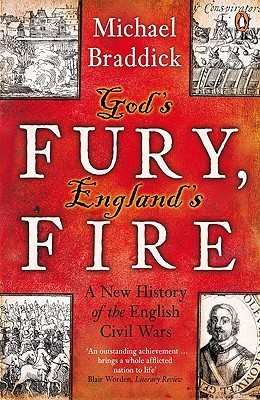
God's Fury, England's Fire: A New History of the English Civil Wars
by Michael Braddick
8 popular highlights from this book
Key Insights & Memorable Quotes
Below are the most popular and impactful highlights and quotes from God's Fury, England's Fire: A New History of the English Civil Wars:
“At the heart of the Reformation message was a rejection of the power of individual believers, or of the church acting on their behalf, to affect God's judgment about who should be saved and who should be damned. Martin Luther had been convinced, like Augustine, of the powerlessness and unworthiness of fallen humanity, and struck by the force of God's mercy. Good works could not merit this mercy, or affect a sovereign God; instead individual sinners were entirely dependent on God's mercy and justified (saved) by faith alone. Jean Calvin, a generation later, developed more clearly the predestinarian implications - since some men were saved and some were damned, and since this had nothing to do with their own efforts, it must mean that God had created some men predestined for salvation (the elect). This seemed to imply that He must also have predestined other men for damnation (double predestination), a line of argument which led into dangerous territory. Some theologians, Calvin's close associate Beza among them, went further and argued that the entire course of human history was foreordained prior to Adam and Eve's fall in the Garden of Eden. These views (particularly the latter, 'supralapsarian' arguments) seemed to their opponents to suggest that God was the author of the sin, both in Eden and in those who were subsequently predestined for damnation. They also raised a question about Christ's sacrifice on the cross - had that been made to atone for the sins of all, or only of the elect? Because of these dangers many of those with strong predestinarian views were unsure about whether the doctrine should be openly preached. Clever theologians, like expensive lawyers, are adept at failing to push arguments too far and there were many respectable positions short of the one adopted by Beza. But predestination was for many Protestants a fundamental - retreat from this doctrine implied a role for free will expressed in works rather than justification by faith. It thus reopened the door to the corruptions of late-medieval Christianity.”
“It is conventional to tell that constitutional story - of a republican failure ending in restoration - but to do so is to limit the significance of the 1640s to that single constitutional queston. There is much more to say, and to remember, about England's decade of civil war and revolution. Political and religious questions of fundamental importance were thrashed out before broad political audiences as activists and opportunists sought to mobilize support for their proposals. The resulting mass of contemporary argument is alluring to the historian since it lays bare the presumptions of a society very alient to our own. At the same time, by exposing those presumptions to sustained critical examination, this public discussion changed them.”
“Arthur Browne, a seminary priest, was condemned at Dorchester assizes on 16 August, and his public recantation was reported for the edification of a wider audience in London nine days later. Hugh Green, condemned at the same assizes, met a grotesque end, which reportedly culminated in a game of football using his severed head.50 This heady mix of anti-papistical writing seems to have underpinned mobilizations across most of the country”
“Print contributed to the mobilizations which rendered institutional politics unstable and, feeding off itself, fostered a lush and confusing world of comment and polemic.”
“These minor paper skirmishes were probably as significant to morale at any particular point as the realities of the broader strategic position.”
“Increasing the supply of information is not, of course, a guaranteed way to foster clear understanding,”
“in such publications ‘moral verisimilitude’ was as important as ‘circumstantial accuracy’.73 But at this juncture such ambiguities made it even more difficult to know not only what to believe, but also whom to believe.”
“An increased supply of information did not in this case solve the central political difficulty of uncertainty and the problem of establishing trust, but it greatly amplified rumours.”


